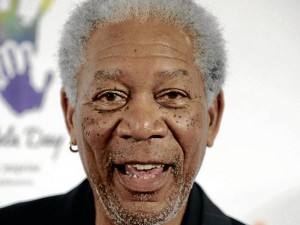Morgan Freeman’s portrayals defy convention
MORGAN Freeman is one of my favorite actors. He was born in Memphis in 1937. He was rather plain-looking, but the screen persona he created onscreen was larger than life. Although it took him a long time to make it big in Hollywood, he became one of the most influential actors in the film capital.
Freeman’s portrayals defy convention. I enjoyed his seemingly effortless acting style. He waited for stardom to come as he was learning his craft. He even appeared on Broadway with Pearl Bailey in the musical, “Hello Dolly.”
The only time I worried for him was when he co-starred with Jack Nicholson in “The Bucket List,” where he was obviously “overwhelmed” by his co-star. One of the reasons why his performances were effortless was because his early role models were Gary Cooper, Spencer Tracy and Sidney Poitier.
Freeman is best remembered for “Driving Miss Daisy,” “Shawshank Redemption,” “Invictus” and “Million Dollar Baby.” His movies also included “Batman,” “Moll Flanders,” “Power of One” (for me, one of his best) and “Bopha,” which he directed.
He was one of the few African-American actors who didn’t display an “attitude” in his films. Most of them seem to have an inner anger, which indicates centuries of slavery and the rigors of the campaign for racial equality in the ’60s. Since those social catastrophes took place ages ago, I feel that these actors should move on.
I cannot forget his performance in “Driving Miss Daisy,” where he appeared with the impeccable Jessica Tandy. He portrayed her harassed driver. He could have readily put on an “attitude” but didn’t. Thus, he won viewers over, and they sympathized with him.
In “Invictus,” although he didn’t look like Nelson Mandela, Freeman nonetheless captured the soul of the Nobel Prize winner for Peace. Instead of showing off, he “insinuates” his characters.
